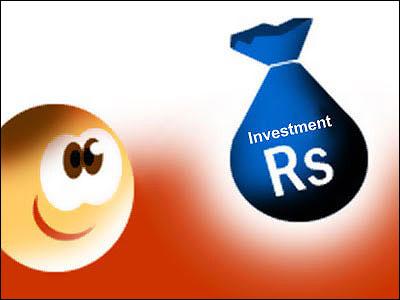 | « Back to article | Print this article |
Golden tips on how best to build your MF portfolio
Every investor must have a clear game-plan and set financial goals based on certain pre-defined objectives with specified time frames, writes Ashok Kumar.
There is a popular school of thought that mutual funds are the most appropriate vehicle for less informed retail investors.
In theory this sounds fine, but given that there exists well over 3,000 mutual fund schemes in the market, selection itself becomes a cumbersome task.
Click on NEXT for more...
Powered by
Golden tips on how best to build your MF portfolio
So how does an investor find his or her way through this maze?
Clearly, the key to generating wealth through this route does not merely depend on mutual fund selection or its timing but on the selection of the correct asset class.
Mutual Fund investing can be an important component of one's portfolio with Equity Mutual Funds being part of the overall equity allocation and Debt Mutual Funds being part of the overall debt investment allocation.
Click on NEXT for more...
Powered by
Golden tips on how best to build your MF portfolio
I have often had people on television shows and investment seminars asking me to recommend an equity mutual fund for five years.
When asked why five years and not more or less, most are stumped for an answer. Clearly, there is no clear-cut gameplan or objective when most investors embark on making investments.
Hence, to start with, every investor must have a clear game-plan and set financial goals based on certain pre-defined objectives with specified time frames.
Click on NEXT for more...
Powered by
Golden tips on how best to build your MF portfolio
In addition to the financial goals, some of the other key factors that need to be considered while structuring a portfolio include the age of an investor and risk appetite besides tax implications and such other criteria that could influence the portfolio structure in terms of asset allocation and returns.
Mutual funds also offer investors a choice to either invest in a scheme with a Growth, Dividend or Dividend Re-investment option.
For an investor without liquidity constraints, it makes sense to choose the Growth option to derive the benefits of compounding and tax efficiency.
Click on NEXT for more...
Powered by
Golden tips on how best to build your MF portfolio
Given the changing demographics of modern India, a large number of Indians will fall in the 25-35 year age bracket.
In many of the cases, these investors will be in a position to undertake an aggressive investment approach.
Keeping these factors in mind, the structure of such a mutual fund investor's portfolio would be quite different from that of a middle aged investor, whose likelier goal would be to secure a continued source of revenue flows for life after retirement.
Click on NEXT for more...
Powered by
Golden tips on how best to build your MF portfolio
Within any portfolio, diversification is crucial.
Now, diversification under Equity Mutual Funds does not mean packing one's portfolio with 25 schemes from across fund houses.
Diversification would mean investing in diverse funds with different focal areas e.g. Large Cap, Mid Cap & Small Cap or Flexi Cap.
Further, including funds based on approaches to investing too will allow further diversification as well as flexibility within the portfolio to capture opportunities across market scenarios.
Click on NEXT for more...
Powered by
Golden tips on how best to build your MF portfolio
Ensuring that your portfolio structuring and weightage accorded to asset classes is optimal and reviewing the same at periodic intervals too is of paramount importance.
Last but not the least, it must be remembered that investing is a game of patience and discipline.
In such a scenario, a Rahul Dravid like approach rather than a Virender Sehwag like approach is likelier to stand one in good stead over a longer term horizon.
Ashok Kumar is the founder-promoter of Lotus Knowlwealth (LKW) and Gurukshetra.com. He is a Chartered Accountant with a Degree in Law and his experience as a Financial Market Expert spans over two decades. He can be contacted at info@gurukshetra.com
Powered by






